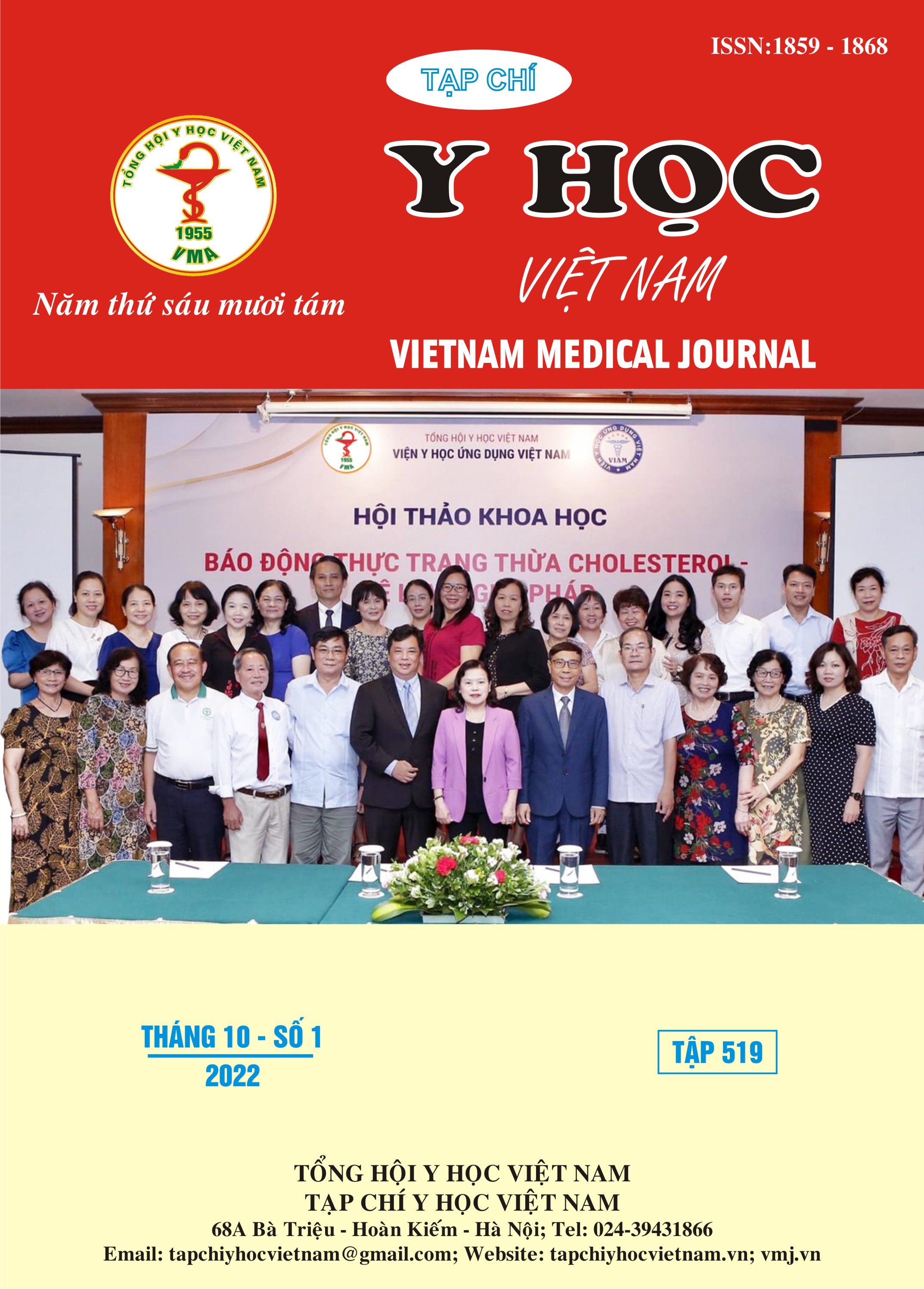UNEXPECTED ANTIBODY SCREENING AND IDENTIFICATION IN PREGNANT WOMEN WITH HISTORY OF MISCARRIAGE
Main Article Content
Abstract
Background: There are many causes for miscarriage such as chromosomal abnormalities, autoimmune diseases, etc… One of which is due to unexpected antibodies, which is the leading cause for hemolytic disease of fetus and newborn. Unexpected antibody screening serves to manage pregnancy outcome but there has not been any research on the rate of unexpected antibody in pregnant women in Vietnam. Objective: The aim of the study is to determine the rate of unexpected antibodies in pregnant women at Hung Vuong hospital from February 2022 to August 2022. Methods: Pregnant women consented to participate in the study for prenatal testing at an obstetrics clinic in a single center were divided into two groups. One is a control group, which contains patients who do not have any previous miscarriage. The other group is the cases group which contains women who had previous miscarriage. All pregnant women participating in the study underwent irregular antibody screening. Those who screened positive for irregular antibodies were tested with antibody identification. Result: The prevalence of unexpected antibody is 0,59% (3/507). The prevalence of unexpected antibody in pregnant women who had previous miscarriage is 0,59% (2/338). The prevalence of unexpected antibody in control group is 0,59% (1/169). Multiple types of unexpected antibody accounted for 66,67% of positive unexpected antibody screening cases and the found antibodies are Anti E, Anti M, Anti Lea, Anti K. Conclusion: Unexpected antibody screening for all pregnant women following Western countries’ policy can not be apllied to Vietnam due to cost and the prevalence of unexpected antibody. Therefore, we propose unexpected antibody screening for pregnant women who is multigravida or had previous history of miscarriage, hemolytic disease of fetus and newborn, previous hyperbilurubinemia newborn, blood tranfusion.
Article Details
Keywords
unexpected antibody screening, unexpected antibody identification
References
2. Đào Thị Thanh Nga, Lê Ngọc Linh, Lương Thị Anh (2015), "Nghiên cứu sàng lọc kháng thể bất thường ở bệnh nhân trước phẫu thuật tại Trung tâm Tim mạch bệnh viện E Từ tháng 7 năm 2013 đến tháng 8 năm 2014", Phẫu thuật tim mạch và lồng ngực Việt Nam, 10, tr. 40-44.
3. Nguyễn Long Quốc, Lê Thị Hoàng Mỹ (2017), "Bước đầu sàng lọc và định danh kháng thể bất thường kháng hồng cầu ở bệnh nhân Thalassemia có truyền máu", Tạp chí Y Dược học Cần Thơ, 8, tr. 159-164.
4. Trần Văn Bé (1999), Huyết Học Lâm Sàng, Nhà xuất bản Y Học TP.HCM, tr. 318-324.
5. Trương Anh Dũng (2017), Khảo sát và định danh kháng thể bất thường ở những người cho máu tình nguyện khu vực Đông Nam bộ tại bệnh viện Chợ Rẫy, Luận án tốt nghiệp Thạc sĩ Y học, Trường Đại học Y Dược TP.HCM.
6. Nordvall M, Dziegiel M, Hegaard H K, Bidstrup M, Jonsbo F, Christensen B, Hedegaard M (2009), "Red blood cell antibodies in pregnancy and their clinical consequences: synergistic effects of multiple specificities", Transfusion, 49(10), pp. 2070-5.
7. Raguz J, Prce Z, Bjelanovic V, Bjelanovic I, Dzida S, Mabic M (2020), "20 Years of Follow-up Alloimmunization and Hemolytic Disease in Newborn: Has Anything Changed in the Field Over the Years?", Klin Padiatr, 232(6), pp. 314-320.
8. Saboor M, Ahmed S (2021), "Prevalence and Specificity of Red Cell Alloantibodies in Un-Transfused Multiparous Women", Clinical laboratory, 1, pp. 67-71.
9. Solves P, Seguí IG, Guinot M, Saus A, et al (2017), "Prevalence of Red Blood Cell Alloantibodies in Pregnant Women and Hemolytic Disease of Newborn in a Tertiary Care Hospital", ARC Journal of Gynecology and Obstetrics, 2(2), pp. 18-23.
10. White J, Qureshi H, Massey E, Needs M, Byrne G, Daniels G, Allard S (2016), "Guideline for blood grouping and red cell antibody testing in pregnancy", Transfus Med, 26(4), pp. 246-63.


